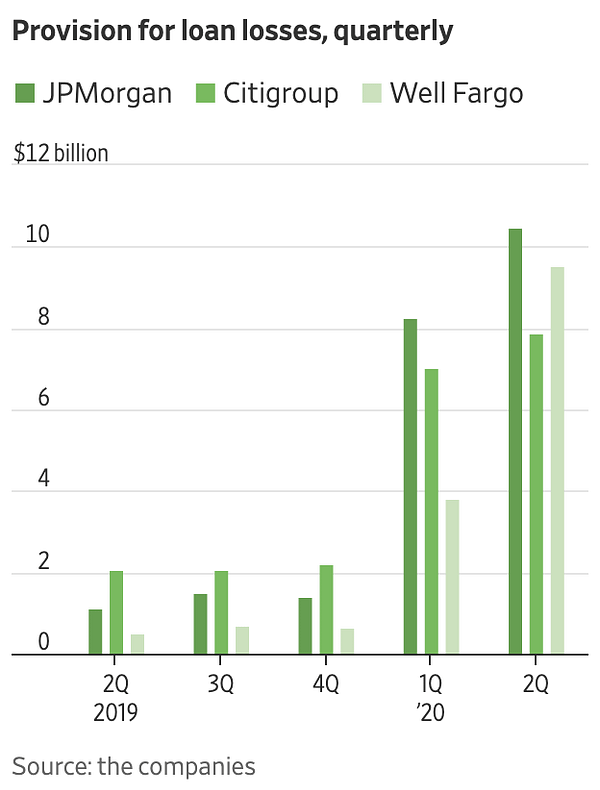 |
Hi y’all, Cokie here!
Super excited to announce the launch of Fintech Today’s first podcast next week—an interview series with people in the fintech industry we admire. Our first interview is an hour long interview with SoFi CEO Anthony Noto, who dives into a plethora of topics—moving from Wall Street to Silicon Valley, fun tidbits from Twitter’s IPO, and a ton about SoFi; everything from getting started, to the Galileo acquisition and newly inked Samsung partnership.
Sign up for our waitlist here and we’ll let you know when the first episode drops next week.
The first 30 minutes will be freely available, but the full hour long interview is only available for FTT+ subscribers—subscribe today for $25/month.
Ian’s also hosting the first episode of a Clubhouse radio show, appropriately called “Fintech Tonight,” at 7pm PT/10pm ET tonight. No idea who else will be on the show, but Ian promises that the finfluencer himself Alex Cohen will be.
So some of you may have seen on my twitter that I got very lost in several playlists dating 2009-2014. Please enjoy a banger on me this Friday afternoon:


The News
FICO is introducing a “Resilience Index,” aimed at responsible credit users during a financial downturn, it’s supposed to provide deeper insight into the users credit utilization over a longer term. This could be useful for a lot of folks, mainly those who already have a credit history. To me, this doesn’t seem to address the concern for those among us who recently immigrated or have historically been denied credit in the best of times. As the economy keeps turning as the effects of COVID get more pronounced, I think we need to be thinking more about how to develop products to help underbanked Americans that might otherwise be left behind.
nCino, a fintech that offers operating software to banks, has decided to go public at a valuation of $2B. Shares were priced at $31 for the IPO, but when the stock opened for the market, the share price had already jumped to $71, where it’s been hovering at since. It’s led to a fascinating discussion on Tech Twitter about the issues around IPO’s, versus other options like a direct listing or SPAC (Special Purpose Acquisition Vehicle.) Benchmarks’ Bill Gurley has been pretty vocal about IPO’s: here’s a few of his tweets attached below.
Is it IPO szn or something? It seems so. Marqeta is looking for an investment banks to take the company public in the first half of 2021, according to Reuters. Fortune reports that Marqeta’s valuation could balloon to $8 billion—almost double the $4.3 billion valuation just *check calendar…* TWO months ago. It also makes the Galileo price tag look cheap in comparison—SoFi bought Galileo for $1.2 billion in April.
Venmo announced a pilot run of a new product focused on sole proprietors. More than 75% of small businesses in the US are sole proprietorships and obviously they’ve faced significant challenges with COVID-19. I think this was really cool and wish them all the success. Can’t wait to see if they decide to move forward in business banking, some think it’s an unlikely play, but given the partnerships they’ve garnered over the years, I can see it. I also recently read that in this space, 95% of Black-owned businesses are sole proprietorships, leading me to believe this is an inclusivity product. On small banking, btw, why is it that all small business ads from banks have a florist as the use case? Literally every single one.
Instagram launched it’s new, redesigned Shop, now powered by Facebook Pay. It seems all social media ultimately becomes a marketplace If Facebook Pay works and gets millions of cards on file, then they have the opportunity to launch a checkout product, which would make shopping on Instagram a lot easier. I buy all my mascara on Instagram and right now it’s a bit clunky (don’t worry, my lashes still slap).
Twitter got hacked. Big time. Companies, CEOs, candidates, and celebrities alike all posted the same tweet, offering to match any individual’s deposit of Bitcoin into a particular account. Cryptocurrency is not to blame here, but damn, does it have a PR problem! As crypto continues to enter the mainstream, regulators will need to think long and hard about the best way to avoid fraudulent activities.
Credit Scoring & Q&A with Kiddie Kredit
Last night as I was watching the German Netflix show “Dark,” I heard some banging and shouting. Upon looking out my window, I saw a group of people marching down Atlantic Avenue, with repeated shouts of “No Justice, No Peace.” Great to see that almost two months later, the people of New York City have not stopped fighting system racial injustice.
In America, even our economy and financial system are poisoned with racial profiling and injustice, leading to prejudiced decision-making from banks and lenders. Credit scoring, in particular, has been the subject of much conversation recently, as it has been repeatedly shown to be perpetuating racial and gender inequality in our economy. (For more on this, see this article from The Guardian.)
A lot of companies, like Chime, are thinking about credit building as we face a global downturn. Building credit and maintaining good credit will be top of mind for consumers.
This led me to consider further products developed to combat these systemic injustices. That’s how I met Evan Leapheart, Founder & CEO of Kiddie Kredit. Check out my interview with him below. Kiddie Kredit helps parents teach children about the risks of credit usage. I really like these kinds of initiatives because the regular lifecycle for credit in its current form is that one day, you wake up and you’re 23, and your bank is like “uh, get a credit card, you broke loser” then you do. Without the right education or literacy around credit, it is very easy to get into debt.
Tell us a little about yourself.
I was born in Pittsburgh and grew up outside of Baltimore. Lived in Miami for 16 years and spent the past year back and forth between LA. Outside of Kiddie Kredit I have been a professional mentor to teens for the past five years and co-founded the Black Men Talk Tech conference.
How did you come up for the idea of Kiddie Kredit?
I went through bad credit myself and saw how it impacted my ability to get a home, job and a car at a decent rate. I also feel that good credit scores would allow more opportunities for entrepreneurs starting out to access a loan or line of credit to build a business they are passionate about.
What problem are you trying to solve?
Economic equality, financial literacy specifically credit.
Did you have a particular customer in mind in the beginning? How has that changed?
Our core customer is still the parent of children ages 4-12. Only thing that’s changed is how we monetize and we don’t seek the parent as our main source of revenue rather the partners that would look to connect with the demographic.
Have you experienced any barriers to valuable resources, mentorship, or funding?
I have been fortunate to have great resources and mentors around me. As far as funding is concerned it has been a bit difficult as we typically get the ’too early’ rebuttal but we continue to refine and define our business model as we go and really listen to our customer base to find out how we can improve.
What's your next big hurdle to overcome?
The next iteration of our app will have a lot more functionalities and capabilities so we are actively looking to raise to ensure we can implement our developments not just in a timely fashion but also so we can be sure the rollout is done securely and effectively
Funding of the Week
Bond Financial Technologies raised $32M at Series A, led by Coatue, with participation from seed investor Canaan and strategic new investments by Goldman Sachs and Mastercard. They plan to use the money to accelerate hiring and launch pilot programs with its first brand and banking partners.
Privacy.com, a virtual payment card startup, raised $10.2 at Series A. The round was led by Teamworthy Ventures, with participation from Tusk Venture Partners, Index Ventures, Quiet Capital, Exor Seeds and Rainfall Ventures. Privacy.com also unveiled a developer friendly card issuing API to make it easier for fintech and non-fintech to quickly starting issuing virtual and physical debit cards.
Tweets of the Week











